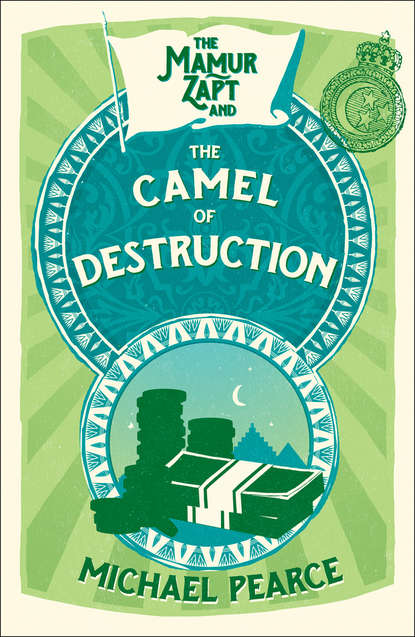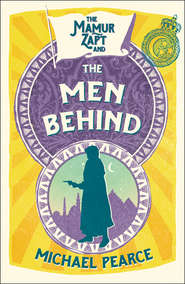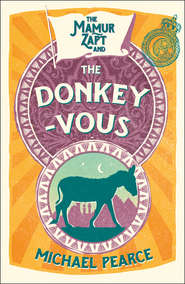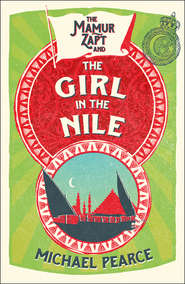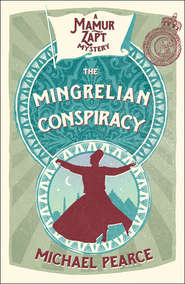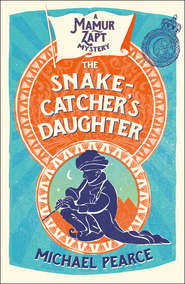По всем вопросам обращайтесь на: info@litportal.ru
(©) 2003-2024.
✖
The Mamur Zapt and the Camel of Destruction
Автор
Год написания книги
2019
Настройки чтения
Размер шрифта
Высота строк
Поля
There was the Minister there, his Adviser, British, so it must be important, the Governor of the Bank of Egypt, British, one or two foreign bankers and Paul, representing the Consul-General.
‘I don’t agree with you,’ said the Minister sharply. ‘And isn’t it anticipating the agenda? I thought we were going to discuss this.’
‘Captain Owen is not attending as a participant member,’ said Paul smoothly. ‘He has observer status only.’
‘That’s precisely the trouble,’ said Abdul Filmi. ‘This committee’s full of observers. No one is actually doing anything.’
‘There, I think, you’re failing to anticipate the agenda, Mr Filmi,’ said Paul. ‘Shall we begin?’
The subject of the meeting was the current difficulties of the Agricultural Bank. The Bank had been set up a few years before to address the problems of Egypt’s cotton-producing fellahin, or peasants. Chief among these was their chronic indebtedness.
They borrowed to buy the land in the first place; they borrowed to buy seed and fertilizer; and they borrowed in order to live when their returns fell short of their costs. The trouble was that they borrowed from local moneylenders at rates of interest so high as to make it virtually impossible for them ever to repay.
The Agricultural Bank was intended to cut through all this. It lent only to Egyptians (the foreign bankers were not too happy about this), it lent only to fellahin and not to rich landowners (the Minister was not too happy about this) and it lent at low rates of interest (none of the bankers were happy about this). However, it worked.
For a time. But then international cotton prices fell, the boom came to an end, interest rates rose and everyone was in trouble. The Bank was in trouble.
‘Over-lent,’ said one of the foreign bankers.
‘Under-secured,’ said another.
And so, only more so, were the fellahin. A few weeks before, the Bank had started foreclosing on its loans.
‘Outrageous!’ fumed Filmi.
‘Devastating!’ murmured the politicians.
But fortunately the fellahin did not have votes.
‘A financial disaster!’ said the British, who were there, after all, to help the Egyptians avoid financial disasters.
The Bank, in their view, was underfunded. This was not the view of the foreign bankers, however. Nor was it the view of Abdul Aziz Filmi. The money was there, all right. Or should have been there.
‘Where has it gone?’
‘Costs of the recession,’ said the Governor of the Bank of Egypt.
‘Administrative expenses,’ said the Adviser.
‘Inefficiency and waste,’ said the overseas bankers.
‘Corruption,’ said Abdul Aziz Filmi.
CHAPTER 3 (#ulink_b5179dfc-1221-5321-b88e-ad558b534281)
‘And what exactly was the nature of Mr Fingari’s work?’ asked Owen.
The Under-Secretary, behind his desk, began to shuffle papers.
‘His work? Oh yes. Well, very important. This is an important Department, Captain Owen. New, but important. Our budget does not really reflect … Of course, you can’t do much with £20,000 (Egyptian). Not if you have to cover the whole country. And not with something like Agriculture. But it’s an important Department.’
‘I see.’
‘We do our best. Of course, with the Khedivial Agricultural Society–’
‘The Khedivial Agricultural Society?’
‘Yes. A very vigorous body. Set up by the Khedive himself a few years ago. With the help of some of your own distinguished compatriots.’
‘The Society comes under your Department, does it?’
‘Oh no, no. Quite independent. Private, you might say. And vigorous, very vigorous.’
‘It promotes discussion, I take it?’
‘Oh yes. Very ardent discussion, yes. And also–’
‘Yes?’
‘It sells.’
‘It engages in business on its own account?’
‘Yes. It sells seed. It has an arrangement with the Agricultural Bank.’
‘I see.’
‘Yes. And – and services, too. It sells services. Veterinary services, pest control … Excellent services, Captain Owen. Of course, we don’t quite have the money ourselves …’
‘What is the relationship between the Society and your Department?’
‘Oh, good. Very good.’
‘Yes, but what does the Department do that the Society does not do?’
The Under-Secretary regarded him thoughtfully.
‘Manure,’ he said.
‘The Department supplies manure?’
‘No, no. The Society does that. Too. That’s another service they offer. And fertilizer.’
‘But then what does the Department do?’
‘Paperwork,’ said the Under-Secretary. ‘Yes, paperwork.’
‘I see. And that’s what Mr Fingari was doing?’





